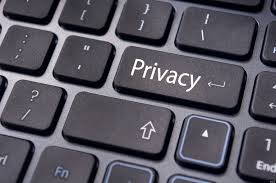Congressman Poe on the Email Privacy Act
 The Electronic Communications Privacy Act was passed in 1986—30 years ago. It was an eternity. Understand that IBM invented and put on the market its first laptop in 1986.
The Electronic Communications Privacy Act was passed in 1986—30 years ago. It was an eternity. Understand that IBM invented and put on the market its first laptop in 1986.
A lot has changed since that day 30 years ago. As the chairman mentioned, the cloud was where rain came from, or sometimes we see it here in Washington, D.C.—the cloud.
No one even knew what that was. The Electronic Communications Privacy Act needs to be fixed because it does not protect the right of privacy of Americans. If something is stored in the cloud that is over 180 days old, then it is open season for government to seize all of that information.
All governments— local or State or Federal—can go in and get those emails, texts, photographs, documents that you are storing. Up to 180 days, it is protected by the Constitution. Interesting—180 days of constitutional rights—but on the 181st day, you have no right of privacy.
That is absurd. This bill fixes that former legislation. I used to be a judge in Texas for 22 years, and I had peace officers all the time come to see me who wanted a warrant.
They followed the Fourth Amendment and described the place to be searched. They would go in with that warrant, after stating probable cause, and they were allowed to seize whatever they could seize under the warrant. The Fourth Amendment ought to apply today.
It ought to apply in the electronic age. It ought to apply to emails that are stored in the cloud or to anything else that is stored in the cloud. If the police officers have to have a warrant to go into your house and take documents you store in your desk or wherever, then they have to have a warrant if you store documents in the cloud.
That is what this legislation does, and it makes sense that we protect the constitutional right. The government cannot tap our phones without a warrant, it can’t read hard mail without a warrant, and it can’t enter our homes without a warrant because of the Fourth Amendment.
We are unique among all peoples because we have in our Constitution the Fourth Amendment that protects Americans—I think better than any other population anywhere—of their rights. Speaking of rights, the government doesn’t have rights.
People have rights, and the Bill of Rights protects the citizens of the United States. Government has authority—it has power—and if you read the Bill of Rights, the 10 Amendments especially, it is to limit government power and authority against us, the citizens.
So, of course, the Fourth Amendment should apply to the Federal Government in this area. Unfortunately, we have seen in our own government abuses of the government in the area, especially of snooping and spying on Americans, with the NSA and its story that we are all familiar with.
We have to control government, and it is our obligation, the House of Representatives, to protect the Constitution—the Bill of Rights especially—from government intrusion.
I support this legislation. It is a good piece of legislation. I thank the chairman and the ranking member and Ms. LOFGREN for her support of this legislation that we have been working on for a long time. Let Congress speak out and support the right of privacy for all Americans and keep the government out of the snooping business.
And that is just the way it is.








